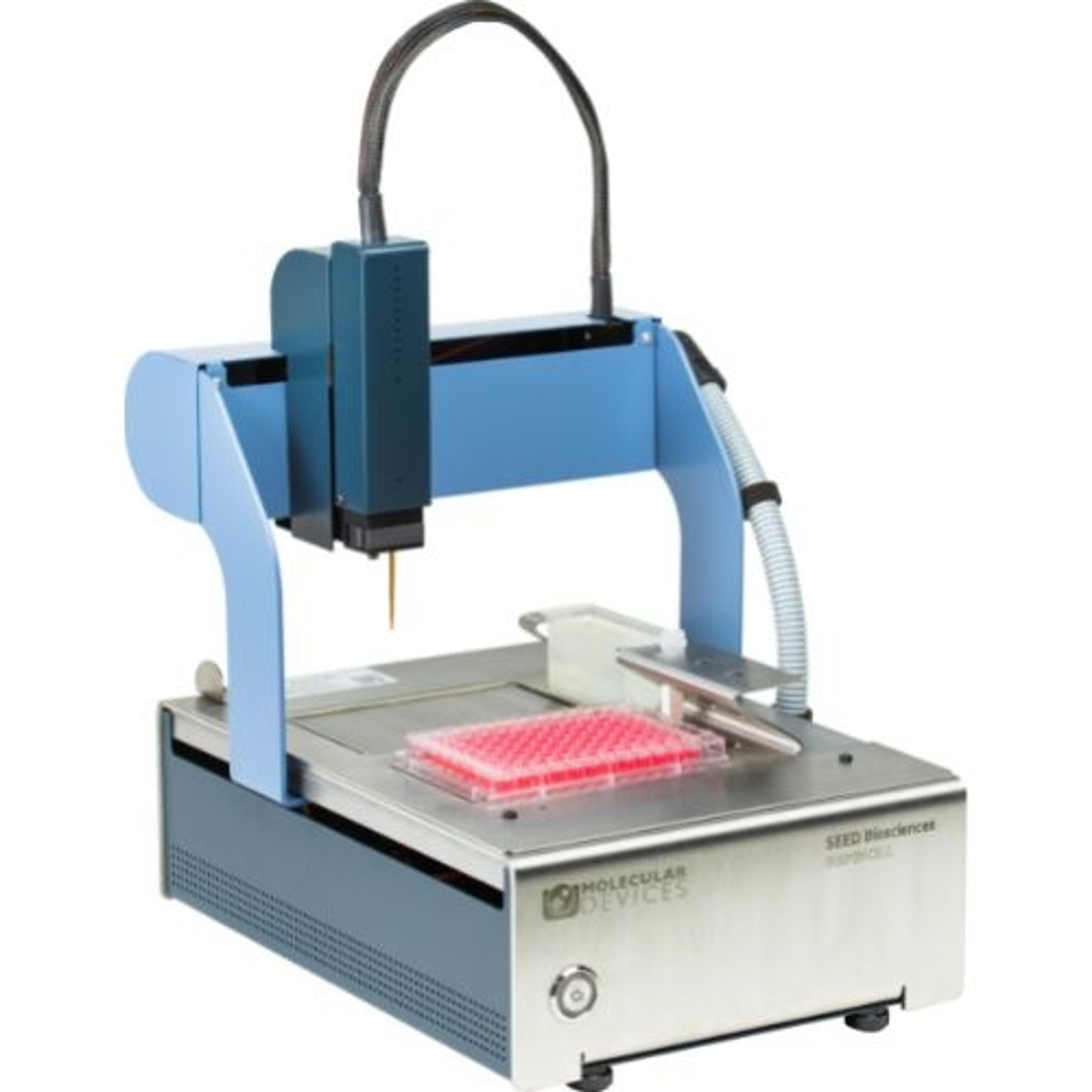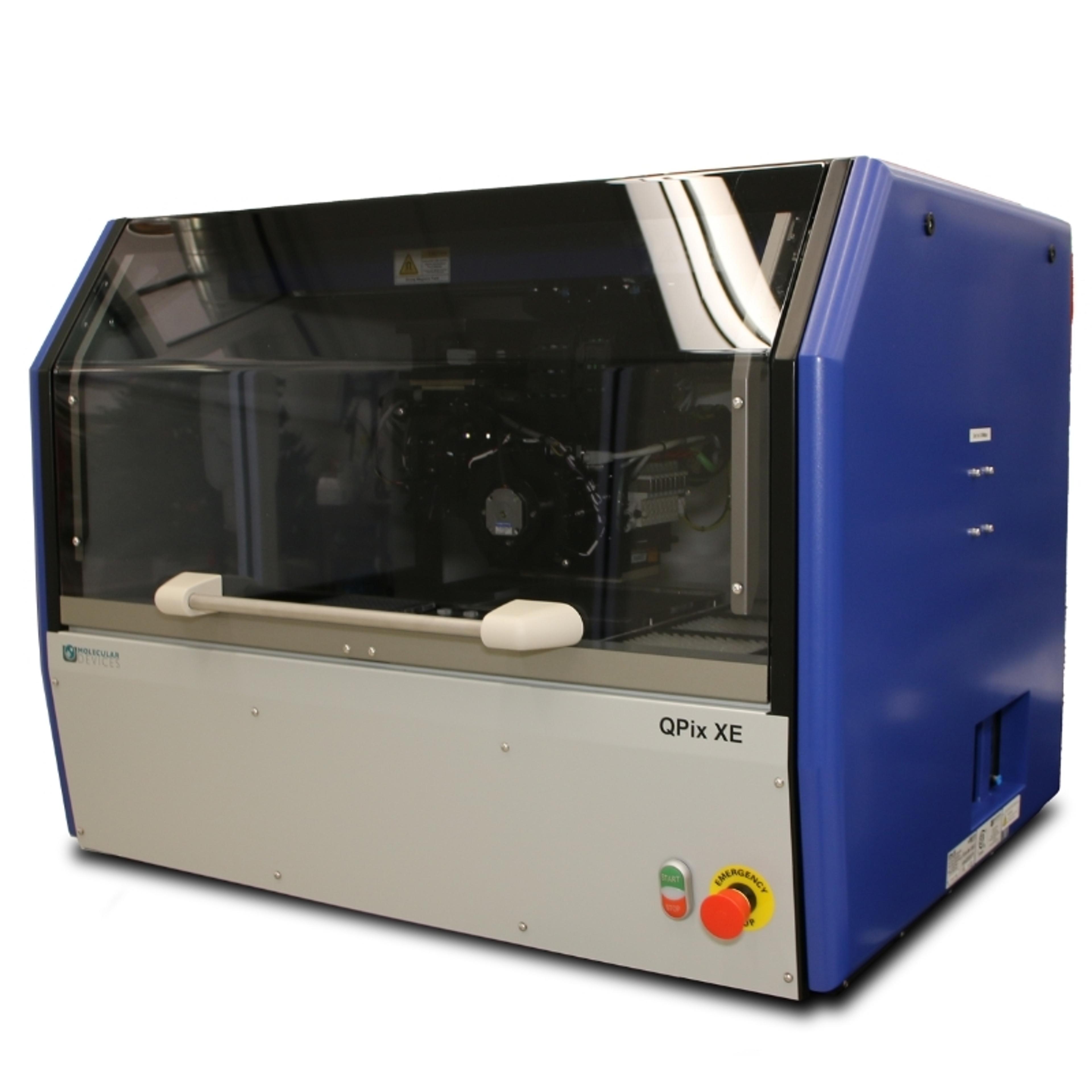CRISPR expands horizons of genetic engineering
Uncover the technology allowing scientists to push boundaries in genetic engineering
14 Feb 2025

Dr. Rebecca Kreipke shares how scientists can achieve their CRISPR editing goals
CRISPR technology has revolutionized genetic engineering. Discovered as a part of the bacterial immune system, CRISPR allows for precise, targeted modifications to the genome. By using the CRISPR-associated protein (Cas9) to create double-strand breaks at specific locations in the DNA, scientists can either disrupt a gene or introduce new genetic material through homologous recombination.
However, the potential of CRISPR extends far beyond traditional gene editing. Here, SelectScience sits down with Dr. Rebecca Kreipke, Field Applications Scientist Manager at Molecular Devices, to learn more about how Molecular Devices’ products can help scientists achieve their CRISPR editing needs.
CRISPR beyond traditional gene editing
CRISPR technology, originally celebrated for its gene-editing prowess, has evolved to play significant roles in other areas such as epigenetics, diagnostics, and therapeutics. This expansion not only underscores CRISPR's versatility but also its potential to revolutionize various fields of biology and medicine.
Epigenetics: Modifying gene expression without altering DNA
Epigenetics involves the regulation of gene expression through mechanisms that do not change the underlying DNA sequence. CRISPR can be adapted to modify these epigenetic marks, offering a powerful tool to control gene activity precisely.
For instance, CRISPR can be used to target DNA methylation and histone modification, which are key regulators of gene expression. By delivering CRISPR components via plasmid vectors, scientists can induce or repress specific genes. One notable application is the use of CRISPR-Cas9 to create dCas9 (dead Cas9) fused with epigenetic modifiers. This modified CRISPR system can either activate or silence genes without cutting the DNA. Such technology is being explored to understand complex diseases like cancer and neurological disorders.
"As our understanding of basic biology deepens, we develop more sophisticated tools that make processes like epigenetic modification more efficient,” Dr. Kreipke states. “These advancements democratize access to genetic engineering, allowing a wider array of labs to participate and innovate."
Automated plasmid production technology, such as that in Molecular Labs’ Plasmid Mini-Prep Bundle, is crucial for an efficient workflow. The Plasmid Mini-Prep Bundle is a fully automated platform designed to streamline the plasmid preparation process, from transformation to purification. This system supports low to medium throughput, making it ideal for research labs aiming to enhance efficiency and consistency in plasmid production. With validated protocols and a compact design, the Plasmid Mini-Prep system ensures high-quality results and scalability, enabling researchers to maintain full control over their workflows without the need for external services. Watch this video to learn more about the process involved.
Diagnostics: Rapid and accurate pathogen detection
"The advances in CRISPR diagnostics are particularly exciting," says Dr. Kreipke. "They enable us to detect diseases with high sensitivity and specificity, which is crucial for managing outbreaks and tailoring treatments to individual patients."
CRISPR is revolutionizing diagnostics by providing rapid, accurate detection of pathogens and genetic conditions. CRISPR-based diagnostic tools, such as SHERLOCK (Specific High-sensitivity Enzymatic Reporter Unlocking) and DETECTR (DNA Endonuclease-Targeted CRISPR Trans Reporter), leverage CRISPR's specificity to identify nucleic acids from viruses, bacteria, or genetic mutations.
Plasmid vectors play a critical role in delivering the necessary components for these CRISPR diagnostics. For example, during the COVID-19 pandemic, CRISPR-based tests were developed to detect SARS-CoV-2 RNA with high precision, offering an alternative to traditional PCR tests. These tests use Cas13a or Cas12a proteins to recognize and cleave target RNA or DNA sequences, followed by a fluorescent signal for easy detection.
Therapeutics: Developing CRISPR-based treatments
CRISPR holds immense potential in therapeutics, particularly for treating genetic disorders and cancer. By using plasmids to transport therapeutic genes and CRISPR machinery into target cells, researchers can correct genetic defects at their source.
One groundbreaking example is the treatment of sickle cell anemia. Researchers have used CRISPR to modify the HBB gene in hematopoietic stem cells, correcting the mutation that causes the disease. These modified cells are then transplanted back into patients, providing a potential cure. Similarly, CRISPR is being used to develop treatments for cystic fibrosis, Duchenne muscular dystrophy, and certain cancers by targeting specific genetic mutations.
"In personalized medicine, CRISPR allows us to craft therapies on a patient-by-patient basis," notes Dr. Kreipke. "This precision ensures that treatments are more effective and have fewer side effects, as they are tailored to the individual's genetic makeup."
Overview of Molecular Devices' portfolio
The success of CRISPR and gene editing projects is closely tied to the precision and efficiency of the instruments used. Molecular Devices offers a range of products designed to enhance the accuracy, throughput, and ease of use in genetic research workflows.
Dr. Kreipke emphasizes that Molecular Devices’ products are designed to “alleviate the burden on researchers so they can focus on making discoveries”. She adds that these products “ensure that researchers have reliable, high-quality data to guide their decision-making.”
- The DispenCell™ Single-Cell Dispenser is an automated laboratory instrument designed for fast, easy, and gentle single-cell isolation. It integrates seamlessly into laboratory workflows, whether under sterile conditions in a culture hood or on a benchtop. This flexibility and ease of use make DispenCell an invaluable tool for researchers aiming to streamline their workflows.
- The CloneSelect® Imager FL is a high-throughput automated solution for imaging and analyzing mammalian cells. These instruments track the formation of colonies from single cells, offering automated acquisition and analysis that ensures accurate, objective, and consistent results. The CloneSelect Imager FL, with its high contrast multichannel fluorescent and white light imaging, enhances the verification of monoclonality and gene edits.
- The QPix XE Microbial Colony Picker streamlines colony selection and picking processes, allowing researchers to focus on discovery rather than repetitive tasks. Its compact size does not compromise on precision, offering scalable automation and easy integration into laboratory workflows. QPix is also part of the Plasmid Mini-Prep Starter Bundle, a fully automated platform designed to streamline plasmid preparation from transformation to purification.
The future of CRISPR in genetic engineering
The future of CRISPR technology is bright, with its applications extending well beyond traditional gene editing. In epigenetics, CRISPR enables precise gene expression modification without altering DNA sequences. In diagnostics, it offers rapid and accurate pathogen detection. In therapeutics, it holds the promise of curing genetic disorders by correcting faulty genes at their source.
As Dr. Kreipke notes, "The most exciting discoveries in CRISPR will likely be those we don't expect. As our tools become more sophisticated, we will uncover new insights and applications that could transform our understanding of biology and our approach to treating diseases."
The ongoing development of CRISPR technology promises to address some of the most challenging problems in medicine and biology. From personalized medicine to sustainable agriculture, the potential applications of CRISPR are vast and varied. With continued innovation and collaboration, CRISPR technology will undoubtedly continue to expand the horizons of genetic engineering, driving forward our ability to understand and manipulate the fundamental building blocks of life.
Explore more of Molecular Devices’ impressive range of products here.



